President William Ruto’s recent remarks about academic qualifications have sparked fresh political tensions.
Speaking in Garissa on February 6, 2025, Ruto questioned why individuals with “little education” were challenging his nationwide livestock vaccination plan.
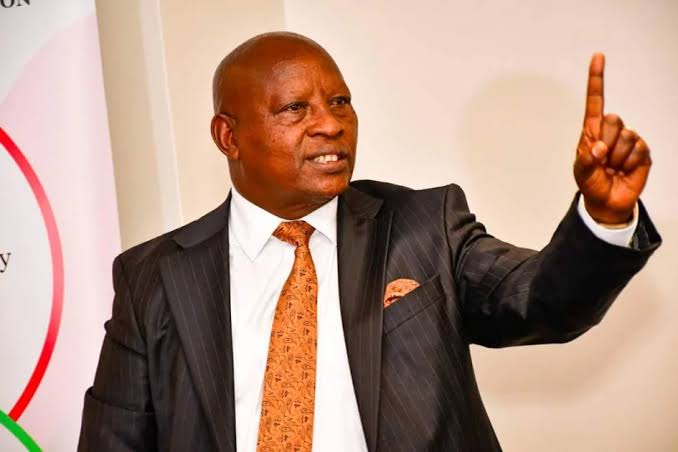
His comments suggested that only highly educated individuals were qualified to critique his leadership, a statement that did not sit well with many Kenyans, including Nyeri Governor Mutahi Kahiga.
Governor Kahiga, who holds a PhD, responded sharply to Ruto’s remarks.
He pointed out the inconsistency in the President’s stance, reminding him that voters were not required to present academic certificates when electing him. Kahiga stated, “Ruto, I also have a PhD, so let me address you.
When we voted for you, you didn’t ask for our certificates. Now, after being elected, you have suddenly realized that some people don’t have PhDs? That is very unfortunate.” His response highlighted the growing frustration among leaders and citizens who feel dismissed by the President’s statements.
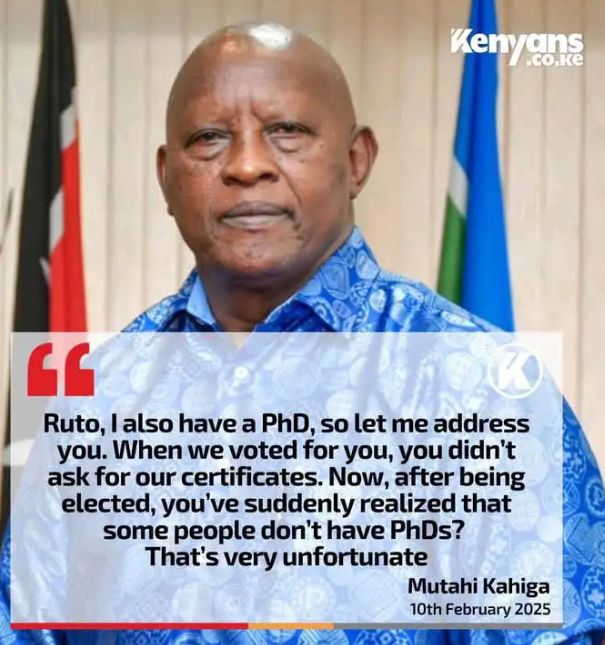
Ruto’s remarks have ignited a debate about elitism and inclusivity in governance.
Many Kenyans believe that leadership and accountability are not solely determined by academic qualifications.
The idea that only PhD holders can question government policies has been widely criticized as undemocratic and out of touch with the realities of ordinary citizens.
Governance involves addressing the concerns of all people, regardless of their educational background.
By dismissing critics based on their academic levels, Ruto risks alienating a significant portion of the population.
The controversy also comes at a time when Ruto’s livestock vaccination initiative is facing rejection from Kenyans.
The program, which aims to control livestock diseases across the country, has faced criticism over its implementation and effectiveness.
Many farmers and leaders have raised concerns about the availability of vaccines, distribution logistics, and overall planning.
Instead of addressing these issues, Ruto’s remarks have been perceived as an attempt to silence dissent by implying that only highly educated individuals are fit to comment on government policies.
Governor Kahiga’s response reflects a broader frustration with Ruto’s leadership style. His dismissive tone towards critics has been a recurring issue, with many accusing him of failing to accommodate differing views.
In a democracy, leaders are expected to engage with all citizens, not just those with academic titles. The ability to govern effectively should be measured by competence, responsiveness, and the willingness to listen, not by the number of degrees one holds.







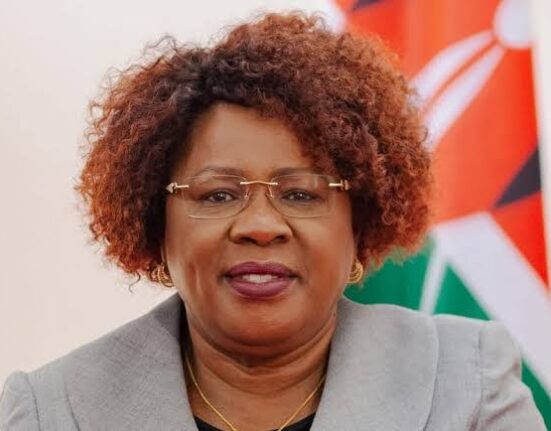
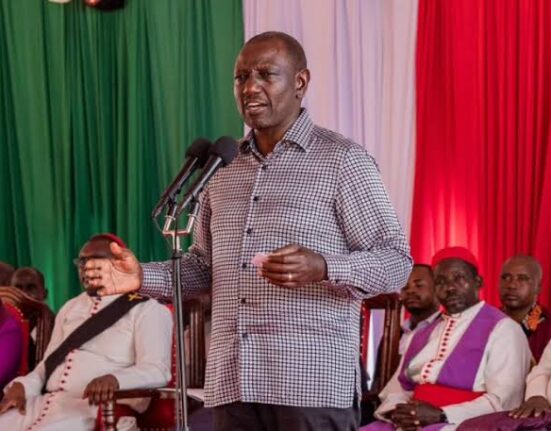


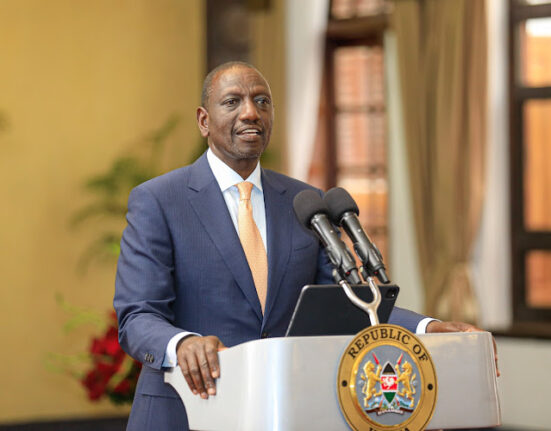
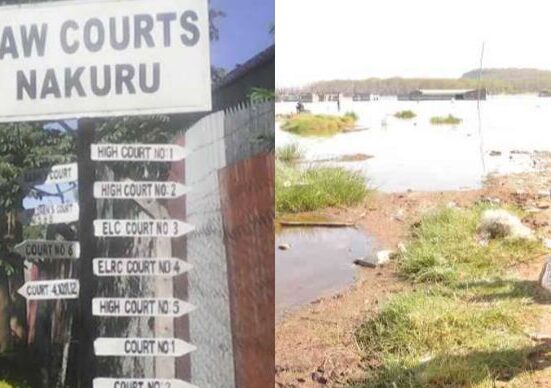
Leave feedback about this